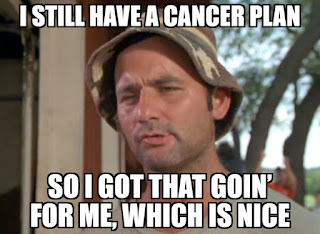This has been a tough year for everyone. Of course, we have all had the Covid pandemic affect us either directly or indirectly. Not only has it been deadly to hundreds of thousands of people, but it has also devastated our economy. Unemployment has been high due to the vast number of businesses that just can't stay open in this environment. And I can't remember another instance in my lifetime where food lines were prevalent.
In my own case, the year started off on a horrible note when my father, who had been suffering from Parkinson's Disease for the last few years, suddenly took a turn for the worse and passed away. And while he was in the hospital during that time, I also ended up in the hospital for almost a week. That all happened in February, and a few weeks later the Coronavirus got bad enough to begin a series of shutdowns.
We all know the rest of the story. Businesses shut down, people were laid off, the economy spiraled downward and, of course, thousands of lives have been lost. Needless to say, 2020 has sucked.
So here we are at the end of the year. Thanksgiving is upon us and there really isn't a lot for people to be grateful for. But for me and mine, we can find some silver linings.
My business took a hit, like many others, but I'm still standing. My income took a hit, but I still am able to pay my bills. And even though I spent some time in the hospital, I can actually say that I now have my health. My family is doing okay and we all have made adjustments.
I try to keep things in perspective. And through it all I have learned to be grateful. For my home, my family, my work and even the two cats that live with us. I'm grateful that my daughter is working and going to school at the same time. And I have special gratitude for my clients who continue to do business with me, especially now that I have made the change from a traditional agency to a virtual agency.
But one of the things I'm most grateful for is this blog, which gives me an outlet to get things off my chest, and more importantly, the great (and very forgiving) people who read my rants. Originally created to help bring some much needed attention to my business, the blog has given me a reason to write more. As I write I formulate thoughts that I can, in turn, use when talking with my clients.
When I write about a cancer plan, I have to actually take the time to learn about that plan. This also applies to our disability insurance or any of the other products offered at Surf Financial Brokers. Doing the research on products so I can discuss them in this blog works in my favor. And my clients enjoy knowing that I know my products too.
It's understandable if you have had a bad 2020. But at some level there is always going to be something to be grateful for. It really depends on your perspective and how hard you look. With a vaccine hopefully being available sooner than later, I think things will start to turn around for all of us. And for that I am grateful.
Chris Castanes is the president of Surf Financial Brokers, helping people find affordable life and disability insurance coverage. He's also is a professional speaker helping sales people be more productive and efficient and has spoken to professional and civic organizations throughout the Southeast. And please subscribe to this blog! Thanks!











